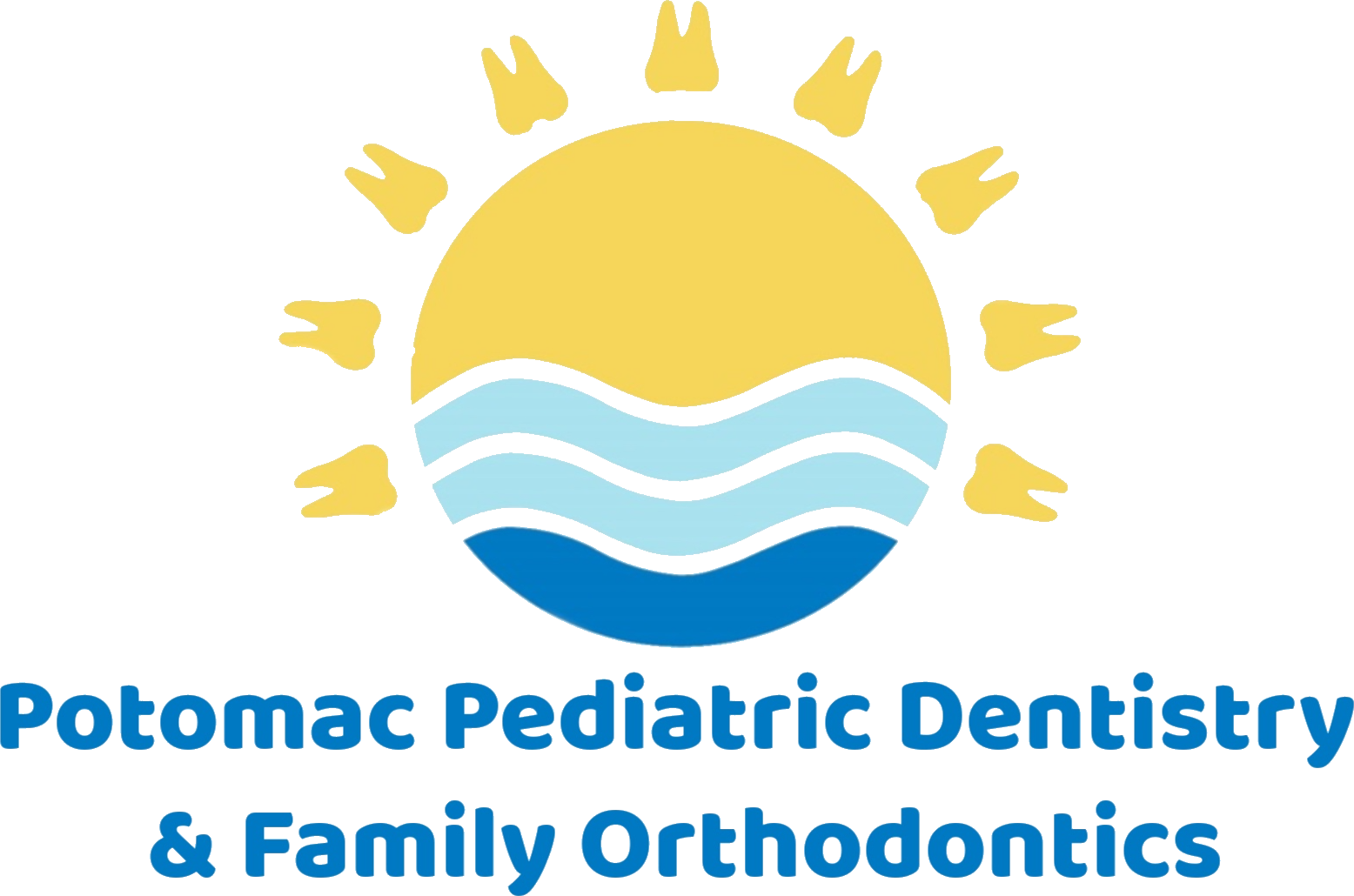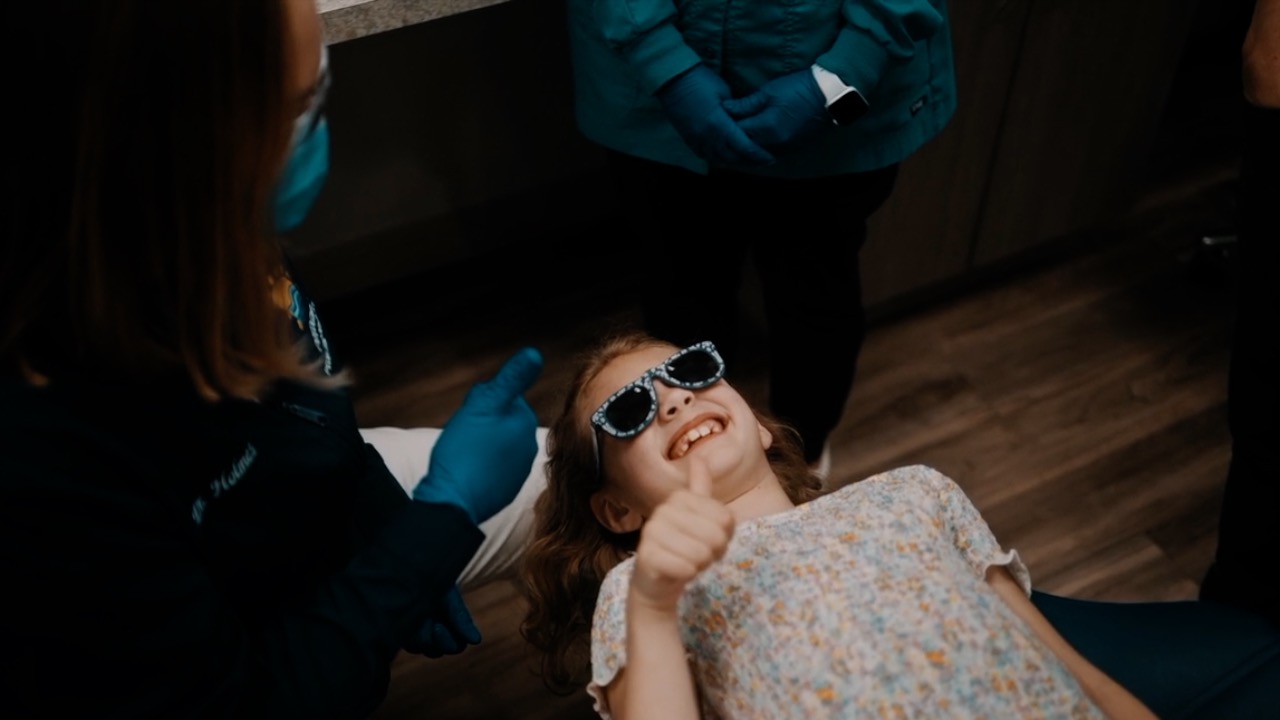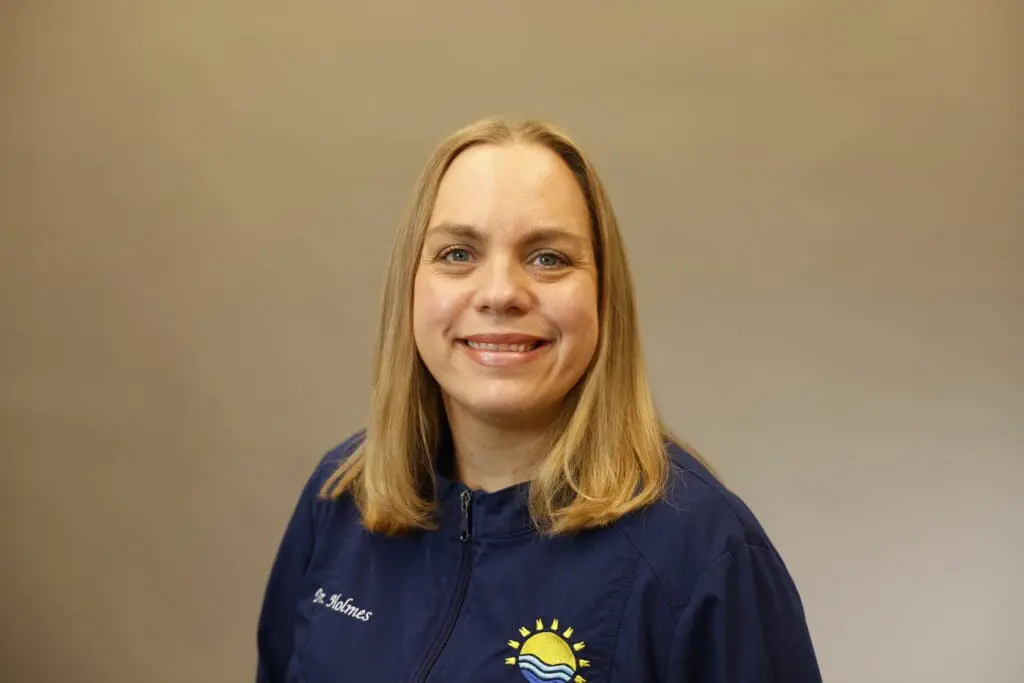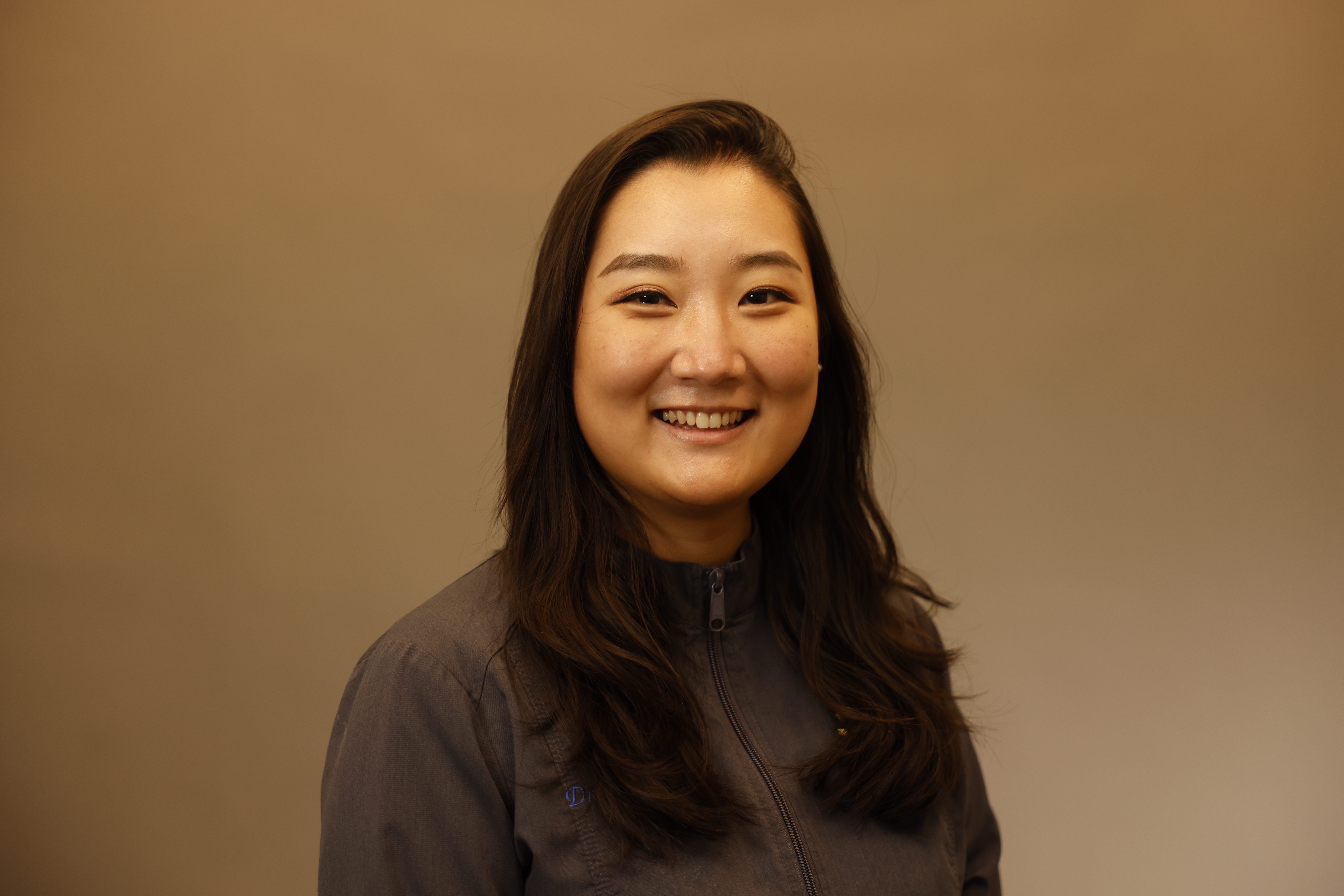Your child’s first dentist visit can be an exciting and anxious time.
You may be feeling thrilled to experience this big milestone with your little one.
But you may also be feeling a little anxious about the whole endeavour.
How will your baby react? How will YOU react? What will happen?
Read on to learn what to expect at your child’s first dentist appointment.
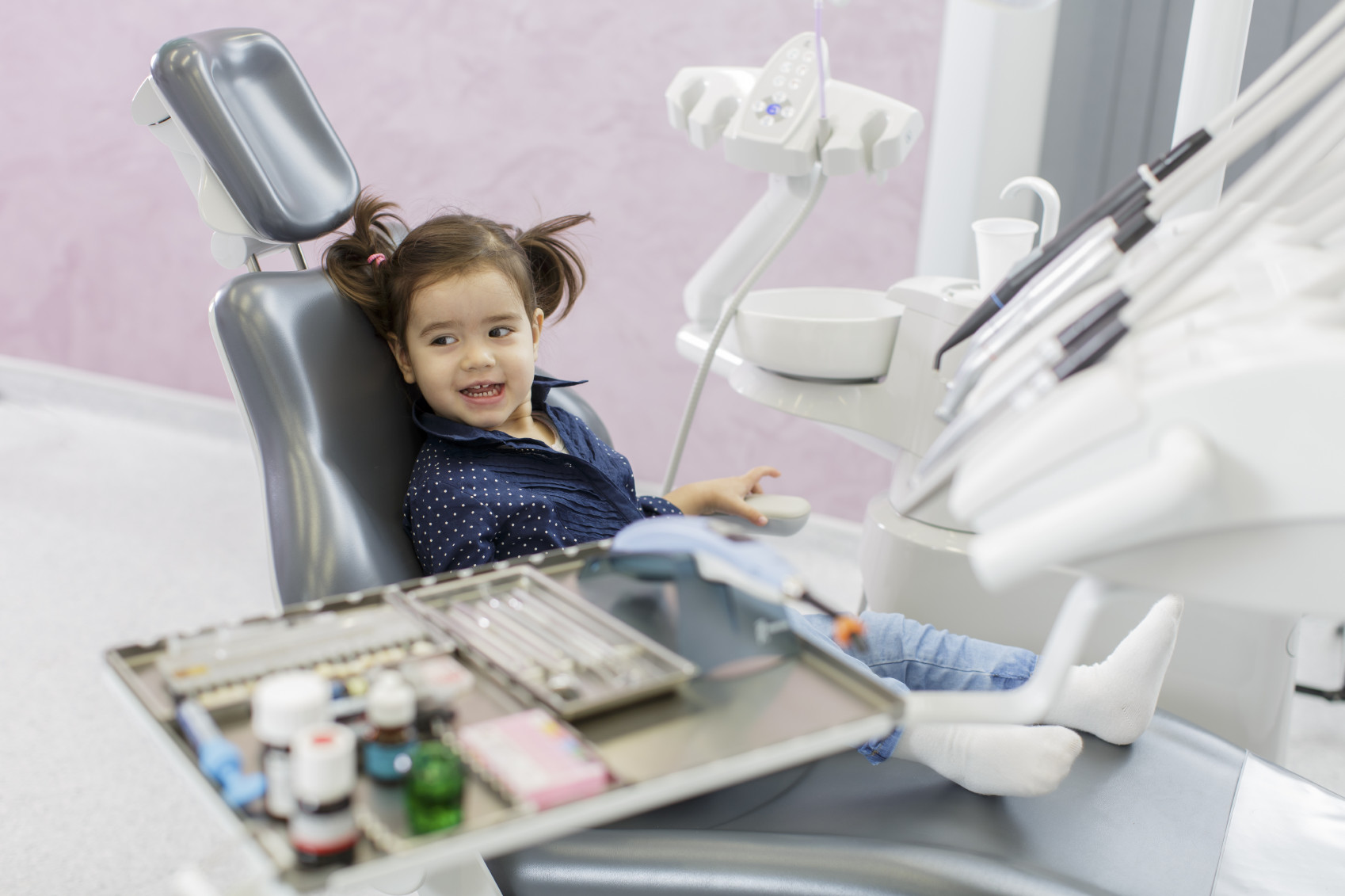
First Visit By Their First Birthday
The American Association of Pediatric Dentistry recommends children see their pediatric dentist by their first birthday. We agree with this recommendation.
In fact, a lot of dentists prefer to see your child around six months. This early visit enables them to identify any risk factors.
The First Dentist Visit Sets The Tone
It is very important to make the first dentist visit as positive and enjoyable for the child as possible. A pleasant, comfortable first visit builds trust and helps put the child at ease during future dental visits. Your child should know that the doctors and staff will explain everything in detail and will answer any questions they have.
A pleasant, comfortable first visit builds trust and helps put the child at ease during future dental visits.
Parents should not make a big deal out of the visit and refrain from using any words that could cause unnecessary fear, such as “needle,” “shot” or “drill.”
The dentist and hygienist can explain treatment procedures in a positive and pleasant manner to avoid any anxious or negative feelings toward dentistry.
The age 1 visit is also for you – the parents!
You’ll get oral hygiene information so you can properly care for your child’s smile.
The dentist may even speak with you about your oral hygiene habits, as these have been shown to have a significant impact on your child’s cavity risk.
Practicing proper oral hygiene daily can prevent costly dental work.
Separation Anxiety And How To Deal With It
Your pediatric dentist should be experienced in dealing with children with anxiety. It is common for children to have separation anxiety, so don’t be concerned or surprised if your child exhibits negative behavior. This behavior will soon diminish.
Studies indicate that the majority of children over age 3 respond more positively when they are allowed to experience the visit on their own and in an environment specially designed for them.
Typically, the dentist can establish a closer rapport with your child when you are not present in the treatment room. However, you should be welcome to accompany your child into the waiting room if you choose to. Children who are not receiving dental care should remain in the waiting area with an adult.
